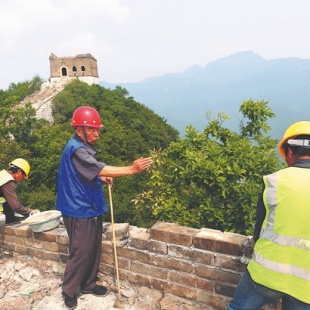Rebuilding brick by glorious brick


There have been four restoration phases since 2016, with 4,520 meters of the 7,850-meter length tackled on this section of the Great Wall in Yanqi town, Beijing's Huairou district. This year marks the start of the fifth phase, which will restore a further 915 meters, including six watchtowers and five side sections. Work is expected to be completed by November 2026 and, to date, two watchtowers have been examined by archaeologists.
The project is making use of advanced technology and new techniques in an effort to maintain the wall's historical integrity. Shang Jinyu, the project's digital technology director, points to the use of drones for panoramic photography and data collection to create a model of the Jiankou Great Wall. The method permits the storage of data before and after restoration so that engineers and workers can determine whether or not the minimal intervention guidelines are being followed.
"Each drone image feeds into our archaeology program's system, allowing us to monitor the wall's condition and ensure minimal disturbance during restoration," Shang explains.
Shang Heng, an associate research fellow at the Beijing Archaeological Research Institute, contrasts this with past practices, which relied on ground observation and were often piecemeal, lacking a holistic strategy.





































